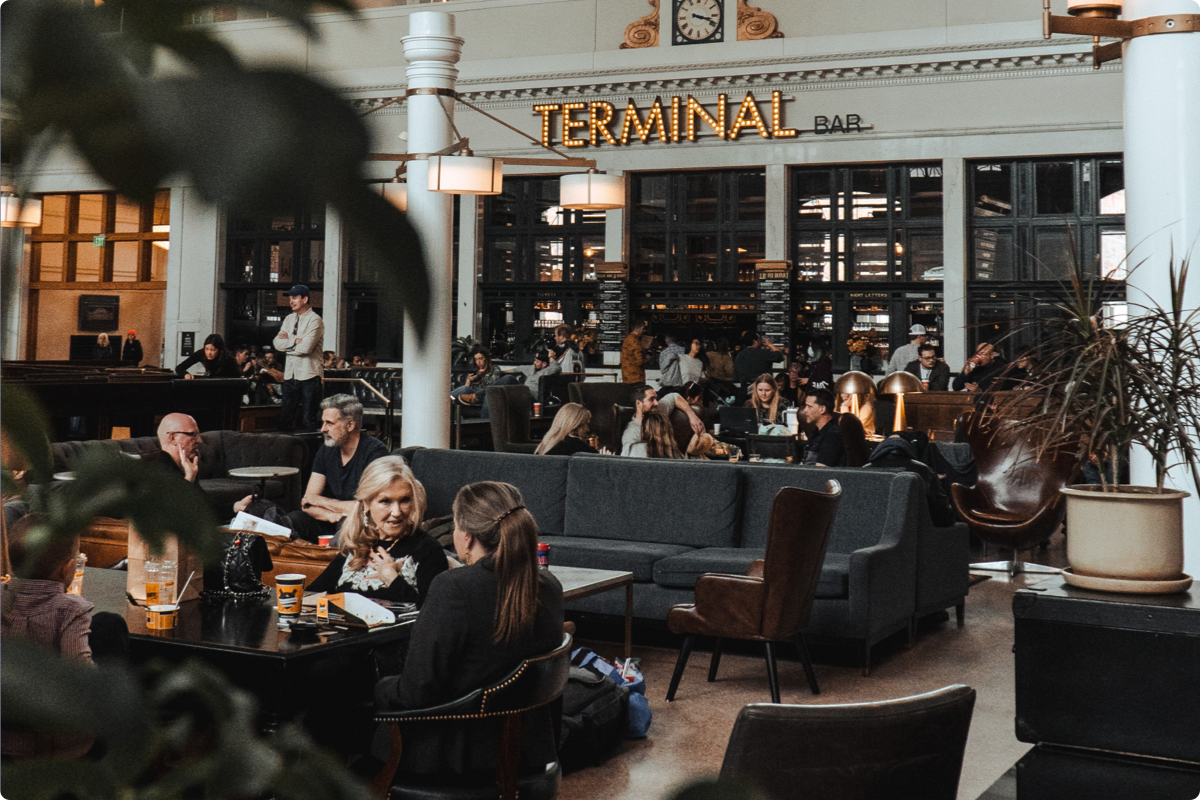
People and placemaking. You can’t have one without the other when it comes to successful, meaningful, purposeful real estate and commercial real estate development.
Culture and people. Again, you can’t have one without the other.
Community and culture. Sensing a pattern here?
The purpose of placemaking is to create vibrant and engaging public spaces that bring people together and foster a sense of community. At the heart of it is people. And at the center of people is culture. Too often culture is viewed as a result of a place or region and as dependent upon certain experiences or economic conditions, and not as an independent force. Local culture and community alone are what create a unique opportunity for locally-based economic and other types of development.
Take Milk Market and Dairy Block for example. When developers McWhinney and Sage Hospitality got their hands on this project — an opportunity to create a vibrant market space in the middle of Downtown Denver — they first had to think about people. What about this empty lot of buildings will make people feel more connected to the city? What history does the brick and concrete of the alley have that screams Denver? What would people find most meaningful and exciting to participate in that would help create a bridge between different types of people?
The answer? Dairy!
In 1916, Denver architects constructed Windsor Dairy on the corner of 19th and Blake. Developers seized the opportunity to honor the history of the building by naming the mixed-use micro-district, Dairy Block. The Block itself is home to an eight-story luxury hotel, dozens of restaurants located in the Milk Market area of the district, bars, retailers, and plenty of spaces to mingle.
There’s not one thing within the Block that isn’t local. All the work that went into creating this space was done so in a way that would showcase all that Denver has to offer — food, drink, art, and tourism. The developers, along with our team of branding experts, thought about more than economic value when creating this space, which is now a staple of the LoDo district of Downtown Denver — we thought about culture, history, community, and the feeling people would get when they walk through the doors. All of which, in turn, resulted in greater economic growth and value.
The intrinsic value of a cultural activity like taking a stroll through Dairy Block is an enriching experience in and of itself. What comes naturally then is the social and economic value of this emphasis and careful attention to the culture sector.
City culture and history, specifically, aren’t always relevant. Each and every project and where it’s located is unique to how culture should be tied into it. Every community has its own cultural identity — a shared history, infrastructure, and traditions. Taking these into account is what will set your project apart from the next. Cultural identity is inseparable from a person’s sense of belonging, understanding, and ultimately, their appreciation of their ‘place.’ It brings vibrancy and character to a public space, allowing people to connect more strongly with their community.
Discover the power of putting people first, and let it change the way you approach your property development project. You’re one step away from the keys to success.
In other words, successful placemaking will ultimately result in a stronger community, but starting with an emphasis on an already existing community will also result in successful placemaking. It goes both ways!
Long before development even begins, one way you can ensure you are taking the community into account, is to talk to them first. Community involvement, on some level, ensures that public spaces are designed with the needs and preferences of the local community in mind. Members of a community tend to have the most unique and accurate understanding of the challenges and opportunities in their neighborhoods, so listen to them!
Besides, if the people within a community feel like they are engaged with a new project, it fosters a sense of ownership and responsibility, and may even encourage them to care more about the space and take care of it.
But most importantly, community involvement promotes a sense of empowerment and active citizenship, diversity, and inclusion. The community will become invested in the process and take pride in their contribution and the final product will end up being a more accurate reflection of the people who will mostly be utilizing the space.
At the end of the day, placemaking is about putting people at the forefront of every decision, and without culture and community, you have no people. With no people, you don’t have successful placemaking. Placemaking is what ultimately strengthens the connection between people and the places they share. It is a concept that was created to shape our public realm in order to maximize value. It encourages developers to pay attention! Specifically to the physical, cultural, communal, and social identities that are the very essence of a place and the very very essential support beams for a place’s ongoing evolution.
We created a whole report about placemaking. It allowed us more insight into what the industry knows about placemaking and how they feel about it. We certainly think placemaking is important and is something we implement in our real estate development approach as well.
Goodness, that was a lot of words, but community and culture? So so so so important to placemaking.
If you want to know more, you should read our report, or look through our insights, we’ve written many on the subject.
And remember…
No people. No Placemaking.
No culture. No people.
No community. No culture.
You need it all.